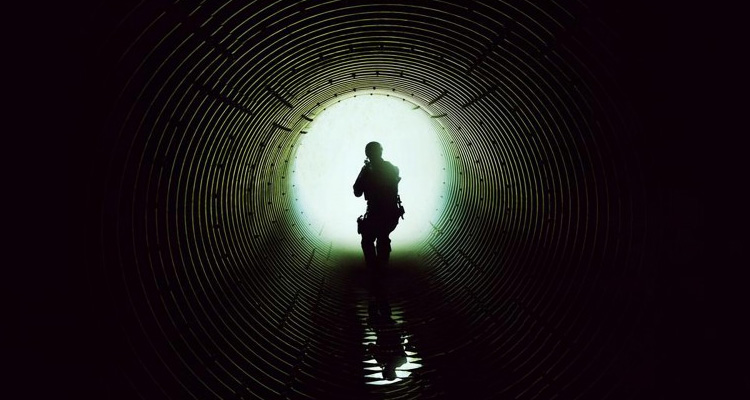Canadian director Denis Villenueve has been making films since 1998, and his latest film ‘Sicario’ premiered at the Cannes Film Festival earlier this year. The film, named after the Spanish word for hitman, is the tale of FBI Agent Kate Macer (Emily Blunt) who finds herself drafted into the DEA, and into a world that is filled with violence, impossible choices and grey moral areas.
We caught up with Villeneuve to find out more about this beautifully shot crime thriller, and how it feels for the director to finally have a film In Competition at the festival.
How did you get involved with ‘Sicario’?
Denis Villeneuve: I am a very very slow screenwriter, and my appetite for cinema is huge right now and I am surrounded by strong scripts, but [with] some of them it’s like falling in love. I read a lot of scripts in the past years, and this one I was traumatised when I read it. First of all, I felt that I was doomed – when you fall in love you have no choice; you have to jump. It came from my agent, saying ‘This is exactly what you are looking for’, because I was really interested in that specific place in America; the border between the United States and Mexico. When I read [screenwriter] Taylor Sheridan’s words I knew this would be my next movie.
What is it about this border that interests you?
DV: …Because we all know how much violence is there, as a North American I know that I share part of the responsibility for that and that violence is under – from what I understood – a cover of silence. I think that violence is horrible, but violence under silence is more horrible. As a filmmaker I feel a responsibility to try to embrace that reality in some way. For me, the movie is not about Mexico. For me, the movie is about America, but still I felt that the screenplay was sensitive to that reality and I felt comfortable to talk about that reality because the story was seen from the American point of view. I know there are strong movies coming out of Mexico, but I think that we should make more and more movies about that reality; people are very afraid and I understand why. I felt, as a filmmaker, I was coming from my heart, it was what I wanted to talk about.
The final scene between Benicio Del Toro and Emily Blunt’s characters is incredibly powerful; how did you prepare for this scene?
DV: People are asking me why I think this is my best film, and it’s not about the film being good in itself, but why I was able to go where I want to go, and do what I want to do as a director, which is bring people together and try to bring the best out of them. This scene is a good example, because it was inspired… It’s in the screenplay, but it’s different. The difference came from discussions that I had with Benicio and Emily, and we felt that what was on the page was not what the movie should be aiming for. Benicio brought ideas, Emily brought ideas and Roger [Deakins] brought ideas; it was a beautiful moment of creation because I knew what I wanted but the journey to get there was a collaborative process. As a director I feel like I am at my best when I am a channel [though which] everybody’s creation comes together, and I can grab that and take it higher. For me, it was just pure teamwork.
The film seems to be a statement on the means justifying the end. Would you agree?
DV: I think, from my humble point of view, that the movie is asking questions about this, I don’t think the movie gave any answers. That’s why I was attracted to this project; because it was raising strong, accurate questions without giving any answers.
I read that screenwriter Taylor Sheridan was asked to rewrite Kate Macer as a male character…
DV: The screenplay was written a few years ago, and it was a screenplay that people were afraid of, in part because the lead was a female character. I know that the screenwriter was asked several times to rewrite the part. When I got on board I embraced the screenplay as it was.
You have been coming to Cannes since 1997, and you have been in every other section of the festival before making it to Competition. Did you ever feel like Emily Blunt’s character; that nobody explained this place to you?
DV: I never take things for granted, and I was not necessarily expecting to come back to Cannes. I am very proud to be here, and it’s a big gift from the festival to invite us. In particular for [SICARIO] because I feel that it’s a movie that’s very close to me, I feel that I did it without any compromise, in total freedom, and the fact that has been recognised on the other side of the ocean is deeply touching.
‘Sicario’ is released in Irish cinemas on October 8th 2015
Words: Brogen Hayes


